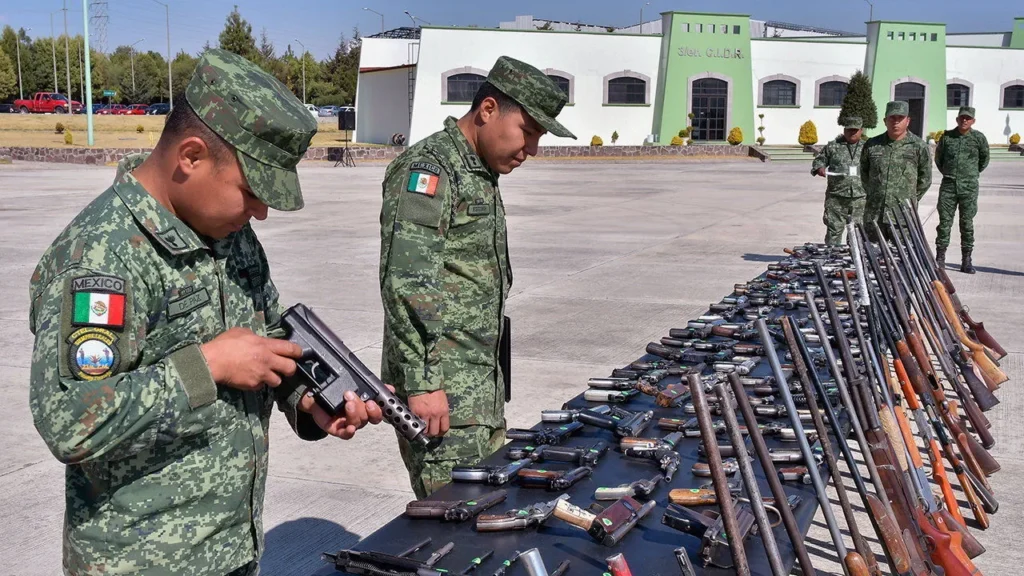
By: Carlos Huembes, 2L
On March 4th, the Supreme Court heard oral arguments in Smith & Wesson Brands v. Estados Unidos Mexicanos, No. 23-1141, in which the Mexican government is suing several American firearms companies including Smith & Wesson, Glock, and Colt’s Manufacturing Company for $10 billion alleging that the companies have been “aiding and abetting” gang violence in Mexico.
Mexico originally filed suit in the U.S. District Court for the District of Massachusetts in late 2022, and argued that American firearm manufacturers violated American laws by knowingly allowing their guns to be trafficked across the Mexican border and into the hands of Mexican cartels. The district court dismissed the case, but on appeal the First Circuit Court of Appeals reversed and allowed the case to move forward. Now, the Supreme Court granted certiorari and heard oral arguments just last week to determine whether the Mexican government may move forward against the American firearm manufacturers.
Noel Francisco, representing the American firearm manufacturers, argued that the Protecting Lawful Commerce in Arms Act of 2005, 15 U.S.C. §§ 7901–7903, was specifically designed to prevent lawsuits like this one. The PLCAA bars lawsuits against firearm manufacturers for crimes involving their products unless the manufacturers knowingly violated federal or state law. During oral arguments, Francisco explained that the manufacturers’ general knowledge that “some percentage of retailers may be doing something illegal” does not rise to the knowledge requirement necessary for PLCAA liability. And further, that through the PLCAA Congress was protecting the Second Amendment rights of Americans from “frivolous lawsuits” which serve to bankrupt the American firearms manufacturing industry.
Catherine Steston, representing the Mexican government, argued that this case falls into a carveout to the statute which permits suit where firearm manufacturers “knowingly” helped aid and abet alleged crimes. She contended that the firearm manufacturers have aided and abetted gun trafficking across the Mexican border by selling to dealers with known connections to Mexican cartels, and by receiving information specifically tying their guns to crime scenes in Mexico yet not taking any steps to prevent future harm.
This case arises amid a wave of gun-related issues the Supreme Court has decided to address. Notably, in the past four years the Court has weakened gun restrictions by striking New York concealed carry laws as overly burdensome, throwing out a federal ban on bump stocks, and most recently hearing arguments on the federal ban on ghost guns—though no ruling has been issued in that case. While the Supreme Court has yet to rule on this matter, a ruling either way could significantly impact gun-related litigation in the years to come.
A ruling for the Mexican government could expose American firearm manufacturers to an extensive litigation, while a ruling against the Mexican Government may indicate that firearm manufacturers wield an absolute shield from litigation even when they knowingly engage in illegal conduct.




